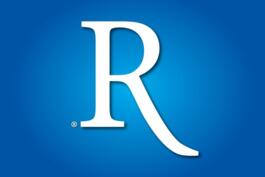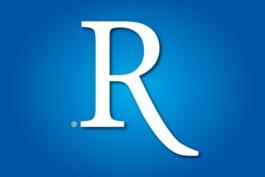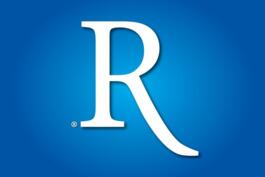The State of Play in the Republican Race
A Commentary by Michael Barone
There are just eight-and-a-half weeks to go until the Iowa caucuses, with two of those weeks devoted to holidays during which polling is ordinarily not conducted, and the race for the Republican presidential nomination seems to be taking perceptible shape. And it continues to defy conventional wisdom.
Since mid-July Donald Trump has been leading in the national polls, except for a moment early last month when he was effectively tied with Ben Carson. His numbers have moved up and down a bit but have stayed between 22 and 30 percent since early August.
He led in polls in Iowa from August to late October, when he was overtaken by Carson, and by late November, despite calling Iowa voters stupid, he was leading there again.
He has led in New Hampshire polls since late July, and by about 15 points since early August. He has led in South Carolina polls since early August, and by 15 points or more until Carson narrowed the gap in November.
Throughout all these months, most political professionals have pooh-poohed his chances of actually winning the nomination -- and for plausible reasons. His trademark promise of deporting all 11 million illegal immigrants is surely a logistical impossibility. His promise to engage in deal-making with Russia's Vladimir Putin seems astonishingly naive. His trash-talking of opponents and members of the press seems shockingly un-presidential.
But as veteran reporter Thomas Edsall writes in his New York Times blog, "his apparent vulnerabilities -- his hubris, his narcissism, his bullying, his boisterousness -- have been strengths in a primary campaign premised on defiance of political correctness, left and right." Perhaps not coincidentally, many Republican voters see hubris, narcissism and bullying as characteristics of Barack Obama.
Trump's support comes disproportionately from non-college graduates and from those with modest incomes -- not the support base for Republican nominees in the recent past.
Interestingly, as FiveThirtyEight analyst Harry Enten points out, Trump has consistently run better in polls conducted by automated phone calls and over the Internet (29 percent) than in live-interview polls (23 percent).
Traditionally, live-interview polling has been the standard technique and its results more trusted. Respondents to Internet polls tend to be self-selected volunteers, not random samples, and it has been assumed that respondents are more likely to spoof machines than actual human beings.
But polling techniques developed for a nation with universal landline telephones and a population that answers the phone may not be producing reliable results in a nation where, according to Politico's Steven Shepard, 47 percent of adults now live in cellphone-only households.
Trump's better-than-average showings in Internet and automated polls suggest that his poll numbers are being boosted by non-voters. But the vastly increased viewership for Republican debates this cycle suggests that he may be drawing previous non-voters into the electorate.
One thing polls of any kind don't do well is project turnout. We'll be able to see whether Trump's poll numbers hold up in the next two months of polling. But we won't see whether he attracts new voters to the polls until the results from Iowa and New Hampshire come in. Republican primary turnout wasn't robust in 2008 or 2012. There's room for it to balloon this time.
Other candidates' standings are easier to assess. Ben Carson, with disproportionate support from religious conservatives, seems to be falling out of contention even in religious-conservative-heavy Iowa.
Marco Rubio and Ted Cruz, who won their Senate seats as upstarts against party establishments in 2010 and 2012, have moved into double digits nationally and in early states.
Jeb Bush, leading in national and New Hampshire polls until July, now seems mired in single digits, despite heavy super-PAC advertising. Evidently, few Republican voters are eager to run a dynastic nominee against Hillary Clinton.
It's theoretically possible that Chris Christie (endorsed by the New Hampshire Union Leader) or John Kasich could jump into contention by winning or placing in New Hampshire. It seems unlikely that in this crowded field anyone else could vault into the top tier as Mike Huckabee and Rick Santorum did in Iowa in 2008 and 2012.
The dream scenario for Republicans skeptical about Trump is that he brings new people to the polls who ultimately rally to another nominee. A nightmare scenario is if Trump is nominated and runs worse than others, as he does in current polling, against Hillary Clinton. An even worse nightmare: if a disgruntled Trump runs as an independent candidate.
Michael Barone, senior political analyst at the Washington Examiner (www.washingtonexaminer.com), where this article first appeared, is a resident fellow at the American Enterprise Institute, a Fox News Channel contributor and a co-author of The Almanac of American Politics. To find out more about Michael Barone, and read features by other Creators writers and cartoonists, visit the Creators Syndicate Web page at www.creators.com.
COPYRIGHT 2015 CREATORS.COM
See Other Political Commentary.
See Other Commentaries by Michael Barone.
Views expressed in this column are those of the author, not those of Rasmussen Reports.
Rasmussen Reports is a media company specializing in the collection, publication and distribution of public opinion information.
We conduct public opinion polls on a variety of topics to inform our audience on events in the news and other topics of interest. To ensure editorial control and independence, we pay for the polls ourselves and generate revenue through the sale of subscriptions, sponsorships, and advertising. Nightly polling on politics, business and lifestyle topics provides the content to update the Rasmussen Reports web site many times each day. If it's in the news, it's in our polls. Additionally, the data drives a daily update newsletter and various media outlets across the country.
Some information, including the Rasmussen Reports daily Presidential Tracking Poll and commentaries are available for free to the general public. Subscriptions are available for $4.95 a month or 34.95 a year that provide subscribers with exclusive access to more than 20 stories per week on upcoming elections, consumer confidence, and issues that affect us all. For those who are really into the numbers, Platinum Members can review demographic crosstabs and a full history of our data.
To learn more about our methodology, click here.



